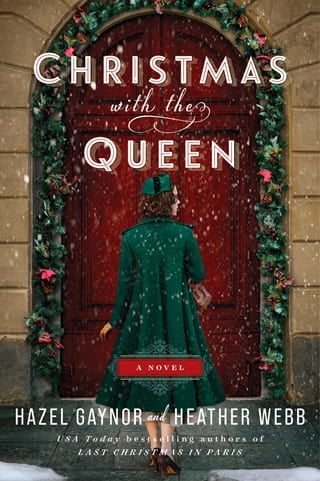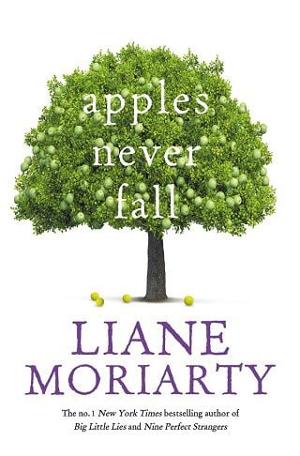Chapter 8 Olive
Chapter 8
Olive
W e left the kitchens within five minutes, finding everyone far too busy to answer my questions. We’d only been under everyone’s feet. Far from the inside scoop I’d imagined, I’d barely written a handful of notes. For all of Sandringham’s warm welcome, procedures and protocol were closely guarded secrets. Far from impressing Tom Harding and proving something to Charlie Bullen, I would be lucky if I returned with anything more than a summary of Charlie’s pieces from the last few years, but with “the queen” substituted for “the king.”
Mrs. Leonard apologized for the brusque manner of the kitchen staff. “I’m very sorry, Miss Carter. They take their work ever so seriously, and don’t take kindly to strangers wandering around. They’re usually a little more accommodating, but they’re very short-staffed at the moment, so their time is precious.”
“Are all chefs so grumpy and serious?” I asked as Mrs. Leonard deposited me in front of a crackling log fire in the library.
“Most I’ve met, yes!” She fluffed a few cushions on the sofa. “The kitchen is like their church, their recipes and processes sacred.”
I scribbled a note on my pad. Kitchen = church. Recipes = sacred. Chefs = insufferable.
“Now, you make yourself comfortable here. I’ll send someone out with that tea, and some of those delicious scones that have just come out of the oven. We’ll finish the rest of your tour once you’ve had a chance to revive yourself a little.”
I tried to forget where I was and concentrated on writing up my notes, sparse as they were. I scribbled a few sentences about the busy atmosphere in the kitchen, the inviting warmth of the house, the pristine whites the chefs wore, and then I added some of the details Evans had told me about the estate’s small army of gamekeepers, gardeners, and farmers, as well as workers on the sawmill and its apple juice pressing plant.
If I couldn’t get any real insight into the royal family, I wondered if there might be some interest in a piece about how Sandringham supported the local community. That it wasn’t all “them and us” and that there was more of a sense of collaboration here, not simply the formality and distance we’d come to associate with the royal family. I filled a page, so lost in my thoughts that I didn’t hear someone enter the room.
I nearly jumped out of my skin when a cough came from behind me. Presuming it was Mrs. Leonard returning with the tea and scones, I turned.
But it wasn’t Mrs. Leonard.
It was her.
Queen Elizabeth.
My heart raced beneath my cardigan. I stood up and attempted a curtsey, which ended in an ungainly wobble. “Ma’am. Your Majesty.”
Without missing a beat, she offered a polite “Hello,” and proceeded to look for a book.
I tried desperately not to stare at her. She was dressed in a sensible tweed skirt, biscuit-colored jumper, and simple flat shoes. She was far more beautiful in person than in the many photographs I’d seen in which she looked regal, but distant and cold. Up close, she radiated the beauty of a young woman in her prime. She carried a surprising warmth and a vibrant energy.
“I don’t believe we’ve met,” she said as she ran her fingertips along a row of spines. “It’s hard to keep track of everyone at this time of year.”
I wanted to tell her that we had met, for the briefest moment, on VE Day, but I knew that she wouldn’t even have noticed someone like me.
“Olive Carter, ma’am,” I said. “With the BBC.”
At this, she glanced in my direction. “I see. Are you doing a piece on me?” She pulled a book from the shelf and thumbed through it.
“I’m doing a piece on the Christmas preparations,” I offered. I was so stunned to be in her company that I could hardly speak. I started to fiddle with my necklace. A nervous habit.
“Oh yes. They do that every year. They usually send a man, though. Bullen, isn’t it?”
“Yes. Charlie Bullen. Unfortunately, he’s unwell. Struck down by the fog.”
At this, she looked up. “Oh dear. I am sorry to hear that. Most unfortunate for him, but it is always rather nice to have another woman about the place.”
“Yes, ma’am. I expect it is.”
She called the corgis after her and left as quickly as she’d arrived. “Do make sure they show you the tree,” she added over her shoulder. “It really is a beauty this year.”
I nodded. “I will. Thank you, ma’am.”
I sank down onto the chair and quickly scribbled some notes to capture our interaction, her mannerisms and demeanor—and yet, having imagined this moment so many times, I couldn’t help feeling a little deflated by our brief interaction. She’d been perfectly polite, but had maintained a clear distance, physically and emotionally. It was going to be much harder to crack the hard shell of royal formality than I’d imagined.
I took a few deep breaths to calm down, and checked the clasp on my necklace to make sure it hadn’t become loose again after all my fiddling.
I’d had little more than a few minutes to process what had just happened when I heard more footsteps approach and someone clearing their throat as they entered the room.
“They asked me to bring you this.”
The accent was instantly familiar. My stomach lurched; my heart began to race. It couldn’t be him. It couldn’t possibly be him.
Not here. Not now.
I turned around. “Jack? Jack Devereux?”
He stood in the doorway, dressed in chef whites, carrying a tray of tea things. I couldn’t believe he was standing there, right in front of me. After all the years, all the hours I’d spent thinking about him, wondering and questioning—and here he was, as if he’d always just been in the next room, waiting to bring me tea and scones.
“What on earth are you doing here?” I asked.
His face was a picture of shock and disbelief, as I knew mine was. “Olive Carter? I don’t believe it! What the hell are you doing here?”
I stood up, my heart racing beneath my cardigan. We looked at each other for what felt like an age, memories and surprise filling an awkward silence as time seemed to slip away and a handsome young man in uniform was asking me to dance on VE Day. He was still handsome, but he looked different. Older, definitely. Dark circles beneath his eyes carried a trace of too many late nights. There was a weariness about him, his shoulders hunched, his eyes reluctant to meet mine.
“You first,” I said. “What are you doing at Sandringham?”
He placed the tray on the table in front of me. “Serving tea to the visitors apparently.”
“You’ve gone up in the world then,” I said with a touch of a smile. “You were peeling potatoes and washing dishes the last I heard.” I took a deep breath, desperate to compose myself. I couldn’t let him see how much his unexpected appearance had unsettled me. So many thoughts raced through my mind as I poured myself a cup of tea and spilled half of it on my skirt in the process.
“Still as clumsy as ever, I see,” he said.
“Still as annoying as ever,” I countered.
At this, he cracked a half smile. I remembered Jack’s smile, although it had usually been aimed in Andrea Keane’s direction.
He pulled a cloth from the belt of his apron. “Here. For the spill. White vinegar will get out the stain. Stop by the kitchen later. I’ll fix you up with some.”
I took the cloth and dabbed at the tea stain on my skirt, embarrassed. “Thank you.”
“It’s really good to see you, Olive. It’s been... what, six, seven years?”
“Seven,” I replied. The dates were imprinted on my mind.
“A long time, anyway,” he said.
“A long time,” I agreed.
Long enough to believe that I’d left those years—and him—behind forever. Long enough to leave me questioning everything now that he was here again.
“So, what brings you to Norfolk?” I asked. “Got tired of cooking for the peasants?” I was nervous and fidgety and found myself playing with the locket on my chain.
“I’m just helping out for the Christmas season,” he said. “All very last minute. You?”
“Same. I’m filling in for someone. The man who usually covers the royal family at Christmas is laid up sick. Lungs affected by the fog. Awful, wasn’t it.” I poured milk into my cup. “I’m writing a piece about the Christmas preparations. Any juicy tidbits you can share with me? Shocking secrets? Scandalous gossip? Secret recipes? A quote from famous royal chef, Jack Devereux?” I was talking too much. “I’m at the BBC now,” I added.
“The hallowed BBC. You got there after all. You always said you would.”
He’d remembered. He’d remembered our conversations, the hopes and dreams we’d shared in companionable moments.
I wondered what else he remembered. How much he remembered.
I poured milk into my cup and added a lump of sugar, even though I didn’t take sugar. Stirring the tea gave me something to do with my hands. “How’s Andrea keeping?” I asked as I took a sip of tea and almost burned my mouth in the process.
At this, Jack seemed to falter.
I took another slurp of tea. “Is she still pretending to be Eliza Doolittle? Selling ’er flowers?” I laughed at my cockney accent, trying to break the unbearably awkward silence.
“Andrea passed away earlier this month.”
My hand flew to my throat. “What? Oh God, Jack. I’m so sorry.”
Andrea was dead? I couldn’t believe it. I hadn’t been especially close to her during the brief time I’d known her, but it was shocking to hear, nonetheless. Now I understood why he no longer resembled the assured Jack Devereux I’d known. He was a man haunted by grief. A man mourning his wife—the woman he’d loved from the moment he first set eyes on her.
“That’s terrible news. Was she ill?”
He shook his head. “A traffic accident. In the fog.”
To lose his wife in such a tragic way... my sympathy deepened.
“I’m so sorry,” I said, stumbling over my words. “You must be devastated. I know how special she was to you.”
He looked at me for a moment as he cleared his throat. “She was special to everyone who knew her. She had a sparkle about her...” His words trailed off. “Anyway, I’d better get back to it.”
I nodded. “Of course.” I returned the cloth to him. “It’s good to see you again, Jack.”
It really was, and yet I was so muddled and confused. I’d often wondered what I would say if I ever saw him again, what I would feel. But now I only had more questions than answers.
“It’s good to see you, too, Olive.” He turned and made his way to the door, where he paused and looked over his shoulder.
Before I could say anything else, he rushed off.
I sank down onto the sofa, all thoughts of my piece on the royal preparations suddenly irrelevant. Jack was here, and Andrea was dead. I couldn’t believe it—couldn’t believe any of it. Mostly, I couldn’t believe that Jack Devereux had waltzed back into my life as suddenly and unexpectedly as he’d waltzed into it all those years ago.
 Fullepub
Fullepub 



